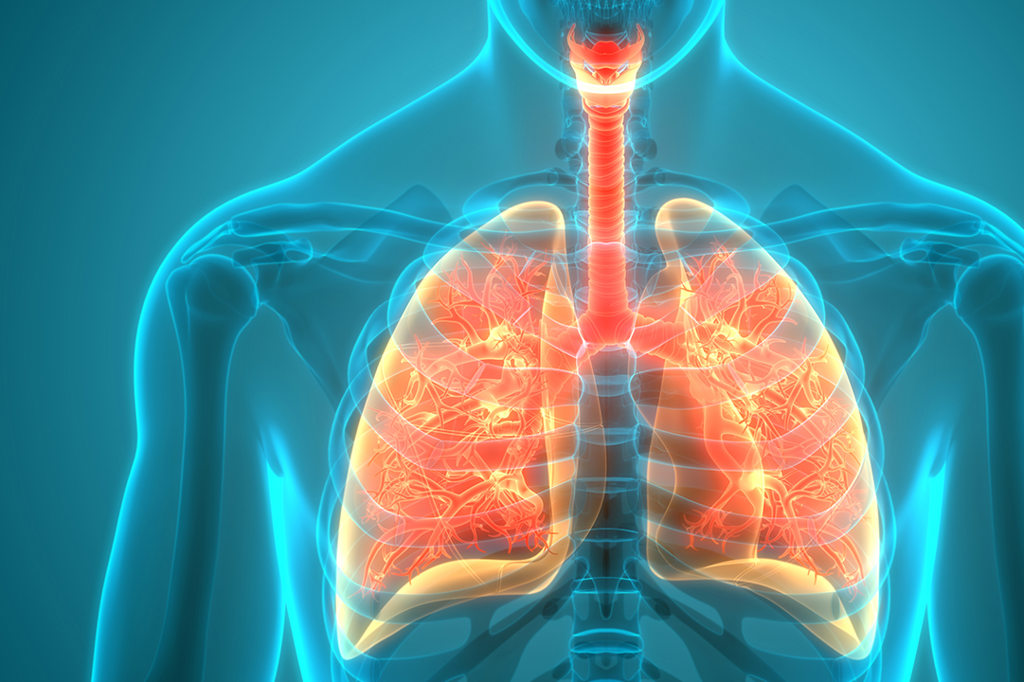
Pulmonary Fibrosis
The Lung Center at Penn Highlands Healthcare provides comprehensive pulmonary fibrosis treatment for patients in central Pennsylvania. While there is no cure for this lung condition, pulmonary fibrosis treatment can improve your quality of life and prolong your life.
Our Pulmonary Team
At the Lung Center, our pulmonology teams manage this chronic condition by offering the latest pulmonary fibrosis treatments:
- Medication - Prescription drugs, called antifibrotic therapy, are available that help slow the progression of the disease. Your lung doctor will choose the right medication for you based on the type and stage of your pulmonary fibrosis.
- Oxygen therapy - Supplemental oxygen may be needed as the disease progresses and your blood oxygen levels decrease. While you may be reluctant to consider this option, oxygen therapy can help you stay active and enjoy life. Staying active helps maintain or improve your overall health as well as helps to manage your pulmonary fibrosis.
- Pulmonary rehabilitation - Pulmonary rehab has many benefits. It will help reduce the number of times you need to see your doctor or go to the hospital. Pulmonary rehab for people with pulmonary fibrosis also will help you feel less anxious and more confident about how much physical activity you can safely participate in, how to live and travel safely with a chronic lung condition, and what signs mean you should call your doctor.
If you have pulmonary fibrosis in Pennsylvania, the Penn Highlands Lung Center can evaluate and help you manage your disease. Proper pulmonary fibrosis treatment is essential to living well with the condition and continuing to do the things you enjoy.

Pulmonology
Critical Care Medicine
Penn Highlands Lung Center - State College
A Service of Penn Highlands Huntingdon
Penn Highlands Lung Center - Philipsburg
A Service of Penn Highlands DuBois
The Lung Center
Penn Highlands Lung Center - Clearfield
A Service of Penn Highlands DuBois
Penn Highlands Lung Center - Brookville
A Service of Penn Highlands DuBois
Penn Highlands Lung Center - Huntingdon
Penn Highlands Lung Center - Clarion
A Service of Penn Highlands DuBois
Diagnosing Pulmonary Fibrosis in Pennsylvania
The first and most important step to pulmonary fibrosis treatment is an accurate diagnosis. An accurate and timely diagnosis is essential to forming the proper treatment plan to improve the quality of your life and give you extra years to enjoy. In the past, pulmonary fibrosis was difficult to diagnose and differentiate from other chronic lung diseases without lung surgery. However, in 2018, Penn Highlands became one of the first centers in the country to begin using the Envisia Genomic Classifier genetic test for diagnosing pulmonary fibrosis without lung surgery in Pennsylvania. Our pulmonologists perform the procedure by using a thin, flexible tube that goes down your throat into your lungs to obtain a small sample of tissue. The Envisia classifier is used to detect genomic patterns that are a hallmark of idiopathic pulmonary fibrosis (IPF), the most common form of pulmonary fibrosis.
FAQs
What is pulmonary fibrosis?
Pulmonary fibrosis is a term that describes more than 200 different lung diseases that produce a common side effect: scarring of the lung tissue. Over time, this scarring can inhibit air flow in and out of the lungs, leading to shortness of breath, particularly while walking or performing other physical activities. Idiopathic pulmonary fibrosis (IPF) is the most common type of pulmonary fibrosis.
What causes pulmonary fibrosis?
Pulmonary fibrosis can be caused by smoking, long-term exposure to certain toxins, radiation to the chest, certain medications and other conditions. It also can be caused by interstitial lung disease, which is a large number of diseases that inflame or scar the lungs. But for most cases of pulmonary fibrosis, there’s no discernable cause for pulmonary fibrosis. When a cause cannot be identified, it’s known as idiopathic pulmonary fibrosis, or IPF.
What are IPF symptoms?
The symptoms of pulmonary fibrosis, including IPF symptoms, are:
- Shortness of breath
- Dry, hacking cough
- Weakness
- Fatigue
- Chest discomfort
IPF symptoms generally develop over time. If you have new or sudden shortness of breath, particularly with chest pain, call 911 or go to the nearest emergency department.
How common is pulmonary fibrosis in Pennsylvania?
It’s difficult to know exactly how many people have pulmonary fibrosis in Pennsylvania and across the country, because many don’t seek a diagnosis or are misdiagnosed. The Pulmonary Fibrosis Foundation estimates there are more than 200,000 people living with pulmonary fibrosis in the U.S. with about 50,000 new cases being added each year. Approximately one in 200 adults over age 70 will develop pulmonary fibrosis in Pennsylvania.
Can I exercise with pulmonary fibrosis?
Leading a healthy lifestyle, including eating a nutritious diet and engaging in regular exercise, can help you stay active longer with pulmonary fibrosis. It’s always important to talk to your doctor before beginning an exercise program. Pulmonary rehabilitation therapists can develop an exercise program to help you safely engage in activity.
